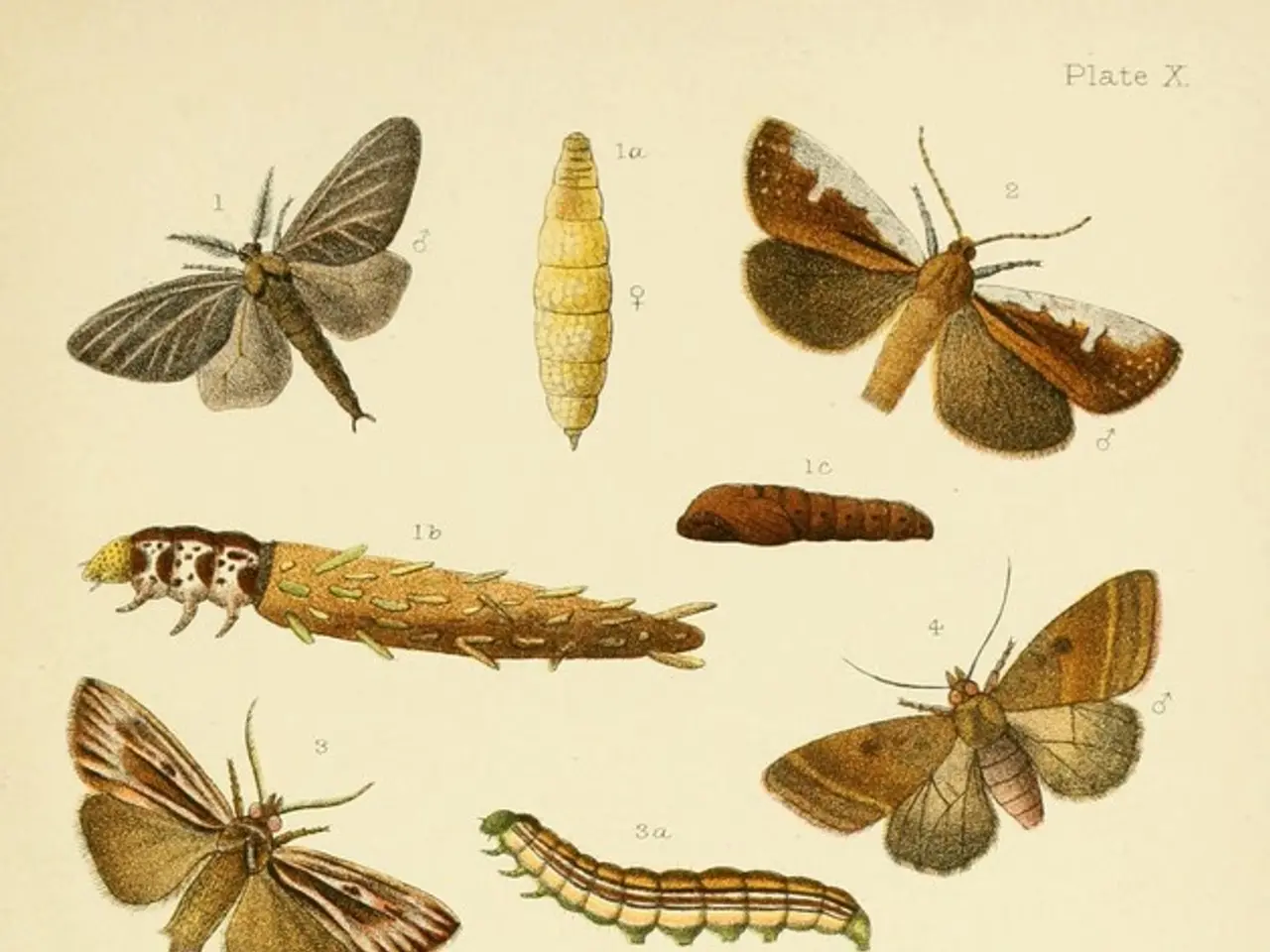Consuming maggots: Potential health implications and prevention strategies
Accidentally consuming maggots may not always pose immediate danger, but the potential health consequences can vary significantly depending on the source of the maggots and the presence of any harmful bacteria or parasites they may carry.
Ingesting maggots from contaminated food or environments could expose an individual to a range of bacteria, such as Salmonella, E. coli, Shigella, and Campylobacter. These pathogens are known to cause a variety of illnesses, including food poisoning, urinary tract infections, and gastrointestinal issues like diarrhea and abdominal cramps.
Flies, the hosts of maggots, are notorious for their role in transmitting these harmful bacteria. They can pick up pathogens from decaying organic matter, such as spoiled food and animal waste, and spread them to surfaces and foodstuffs.
While maggots themselves do not typically cause disease, the bacteria they may carry can lead to infections if ingested. Symptoms of such infections can include gastrointestinal issues like nausea, vomiting, or diarrhea, although these are not usually severe.
It's worth noting that some people with intestinal myiasis, the condition where a person becomes infested with fly larvae, may not experience any symptoms at all. However, in more severe cases, symptoms can include abdominal pain, nausea and vomiting, itching in the anus, bleeding from the rectum, and other complications such as bacterial poisoning, dehydration, and even sepsis.
To mitigate the risks associated with maggot ingestion, it's crucial to ensure that food is handled and stored safely. This includes proper refrigeration, frequent cleaning of food preparation areas, and discarding spoiled food promptly.
Scientific research is ongoing into the potential of using black soldier fly maggots for human consumption, but at present, there is no guaranteed risk-free way to consume maggots safely. As such, it's advisable to err on the side of caution and avoid consuming maggots, especially those found in unsanitary environments.
If you suspect that you have ingested maggots or are experiencing symptoms of bacterial infection, it's essential to seek medical attention promptly. This is particularly important if you experience visible larvae in your stool, persistent abdominal pain, symptoms of bacterial poisoning that worsen or do not get better, diarrhea lasting more than a few days and a fever, bloody stool, signs of dehydration, or severe or persistent vomiting.
In conclusion, while the risk of harm from accidentally ingesting maggots is generally low, the potential for exposure to harmful bacteria and subsequent illness is a concern. By adhering to good food hygiene practices and seeking medical attention when necessary, individuals can protect themselves from the potential health risks associated with maggots.
- Aq (individual) might come across various medical-conditions when ingesting maggots from contaminated food or environments, due to bacteria like Salmonella, E. coli, Shigella, and Campylobacter.
- Eczema, nausea, vomiting, diarrhea, and abdominal cramps can be symptoms one might experience from ingesting bacteria-carrying maggots found in unhygienic places.
- In some cases, intestinal myiasis, the presence of fly larvae, might not present any noticeable symptoms. However, persistent nausea, abdominal pain, bleeding from the rectum, and sepsis could signal a more serious condition.
- Adhering to health-and-wellness practices, such as safe food handling and storage, can help lower the risks of bacterial infections from maggot ingestion.
- The predictive science of nutrition and lifestyle suggests that consuming maggots, even the black soldier fly variety, may involve unknown risks and is not yet considered safe for human consumption.
- Skin-care and fitness-and-exercise regimes are essential components of a holistic health approach, as they help enhance overall well-being and possibly guard against infections caused by harmful bacteria like those carried by maggots.
- When faced with suspicion of maggot ingestion or indications of bacterial infection, prioritizing timely medical attention is vital for potential diagnosis and treatment.
- Being informed and vigilant about food-and-drink safety, personal hygiene, and the potential hazards posed by inadvertent maggot consumption can help individuals ensure a sound lifestyle and safeguard their health.




